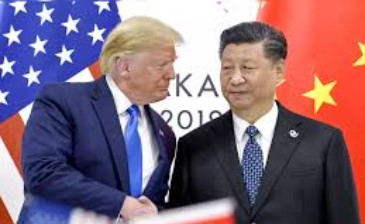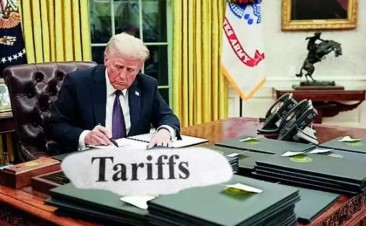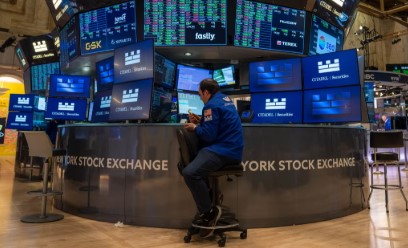
Trump Orders National Security Probe into Chinese Semiconductors; More Tech Tariffs Expected
- World News
- April 14, 2025
- No Comment
Trump Orders National Security Probe into Chinese Semiconductors; More Tech Tariffs Expected
The United States is preparing to impose new trade barriers on Chinese technology imports, following President Donald Trump’s announcement of a national security investigation into semiconductors and the broader electronics supply chain.
In a statement released on social media Sunday, President Trump emphasized that previously exempted devices such as smartphones and laptops will soon face new tariffs. “These electronics are simply moving into a different tariff category,” he stated. “We’re now focusing on semiconductors and the entire electronics supply chain under national security investigations.”
Tariff Shift May Hit Tech Giants
The announcement comes just two days after the White House granted temporary exemptions on tariffs for several technology products, offering short-term relief to companies like Apple and Dell that depend on Chinese imports. However, Commerce Secretary Howard Lutnick confirmed on Sunday that these exclusions are only provisional and that new duties targeting smartphones, computers, semiconductors, and pharmaceutical products will be introduced within the next two months.
“These aren’t part of the reciprocal tariffs but will be included in a special national security tariff framework,” Lutnick explained during an interview on ABC’s “This Week.” He added that the administration’s goal is to move essential manufacturing back to the United States.
Market Volatility at a Peak
The president’s shifting tariff policies have rattled global markets, triggering the most volatile week on Wall Street since the pandemic. The S&P 500 has dropped over 10% since Trump assumed office in January, reflecting growing investor anxiety over escalating trade tensions.
Billionaire investor Bill Ackman urged Trump to reconsider, suggesting a temporary 90-day pause and a reduction in tariffs to 10% to encourage supply chain shifts without destabilizing the economy. “The goal can be achieved with less disruption,” Ackman wrote on X (formerly Twitter).






